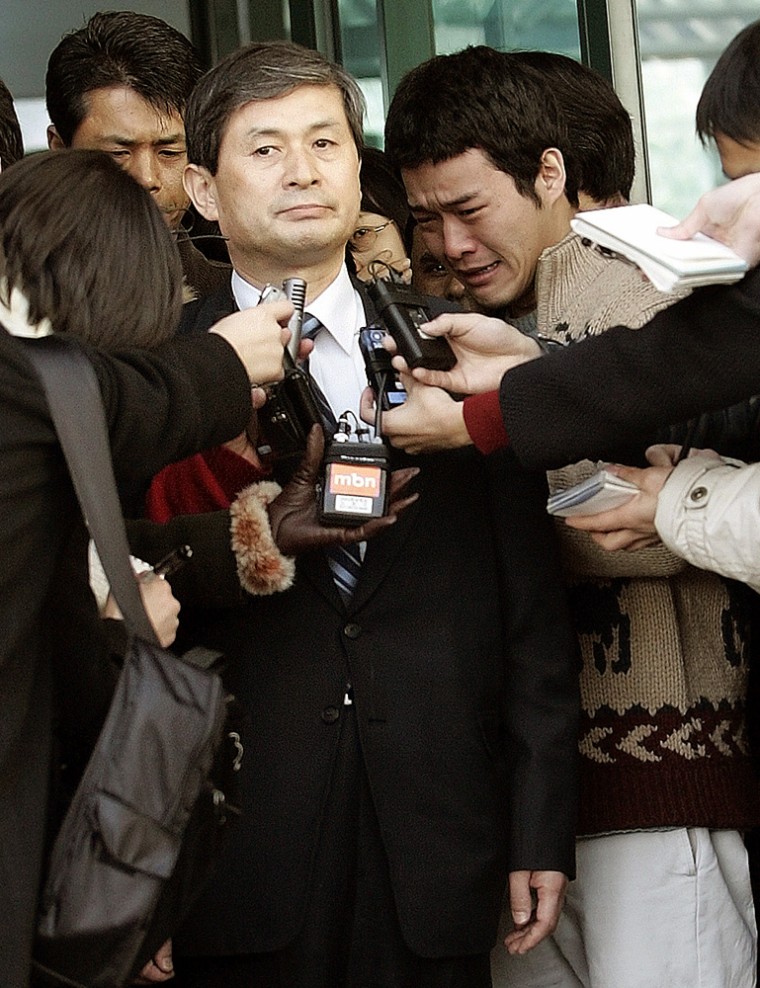A panel investigating disgraced scientist Woo Suk Hwang said on Friday that it would issue its final findings next week on whether he committed fraud in claiming he had developed tailored embryonic stem cells.
The panel of Seoul National University and outside scientists will also release its conclusion on Tuesday on the veracity of Hwang's claim last year that he had produced the world's first cloned dog.
"The report will contain the result of the investigative committee's probe and analysis of the veracity of the 2005 Science paper, the 2004 paper, the cloned dog Snuppy, and the supply of eggs," the university said in a statement.
The panel said in an interim report last week there was no data to prove a 2005 paper in which Hwang's team claimed they had produced stem cells from tissues taken from actual patients, a key step to the goal of treating several incurable illnesses.
The problems with the 2005 paper have cast suspicion on Hwang's two other dramatic claims:
- In a 2004 paper, also published in the journal Science, Hwang and his collaborators reported that they had cloned, for the first time, a human cell potentially capable of providing a source of embryonic stem cells — master cells that can provide a source of any type of tissue or cell in the body.
- In yet another paper, published last August in the journal Nature, Hwang's team showcased what it said was the world's first cloned dog, an Afghan hound named Snuppy, short for "Seoul National University puppy."
Science's editors said on Wednesday that they would retract Hwang's 2005 paper after the Seoul National University panel completes the investigation.
Hwang has been accused by the panel, colleagues and junior researchers of deliberately fabricating data. Female members of his team also said Hwang coerced them to donate their own eggs for his research.
The scientist had been widely feted by the government and admired by the public before the scandal broke in November. When the problems came to light, Hwang conceded that there were irregularities but insisted that the underlying research would be proven sound. He has been in seclusion since resigning from Seoul National University on Dec. 23.
